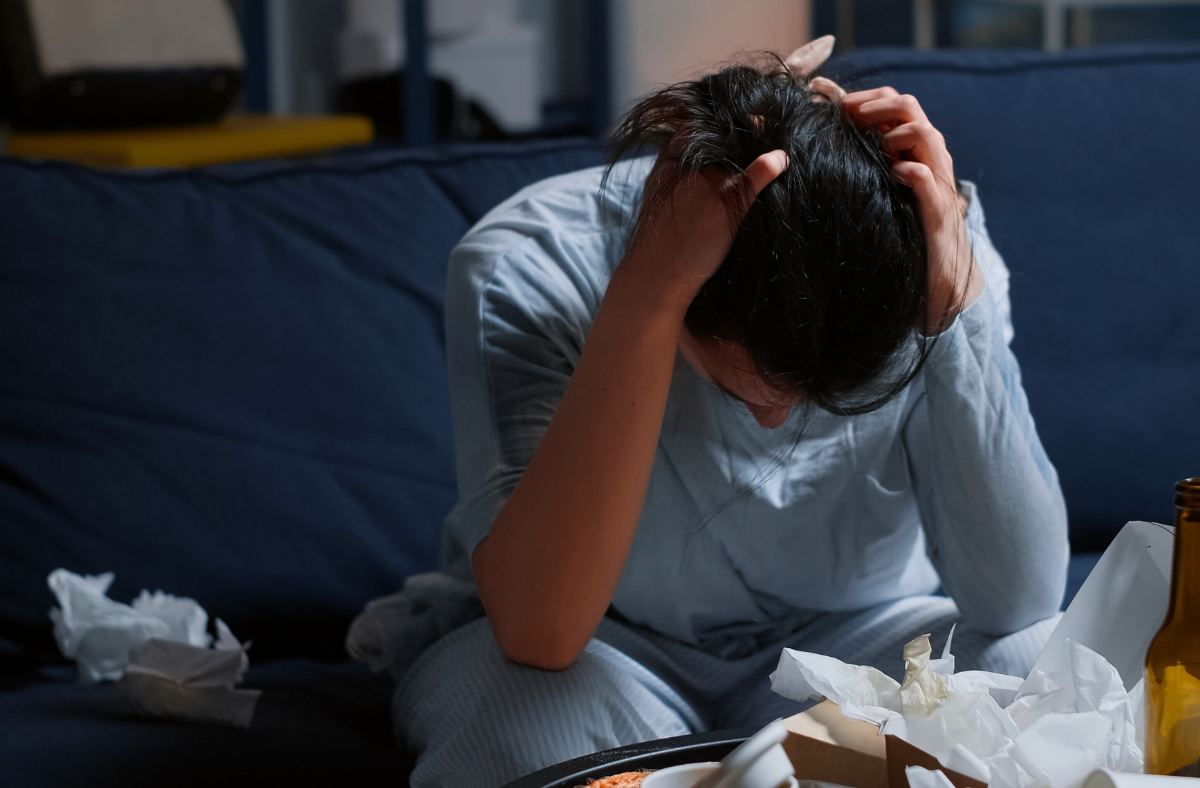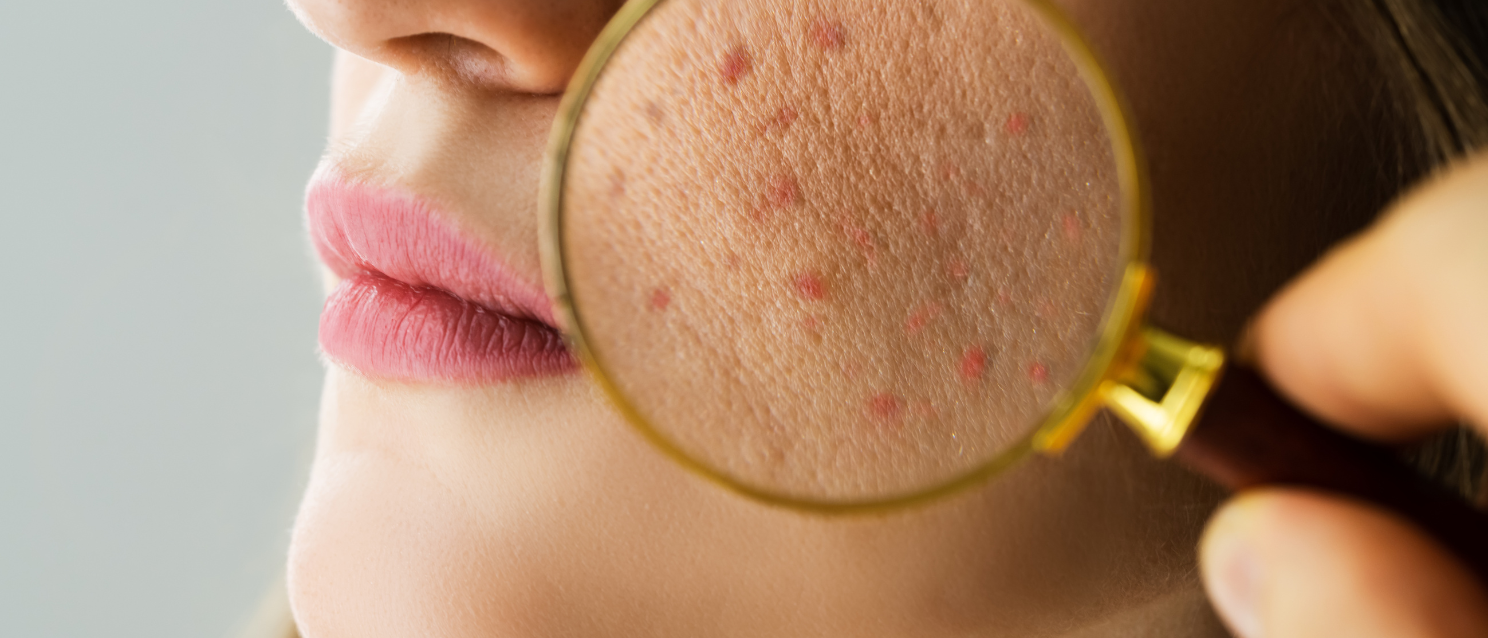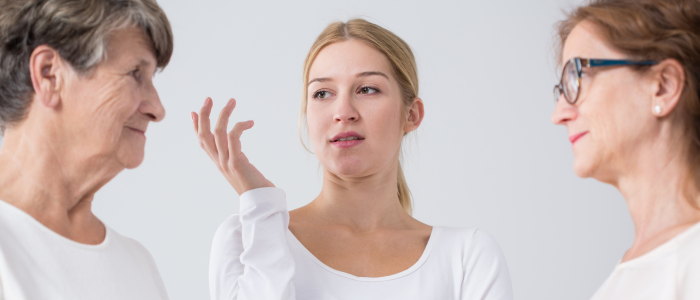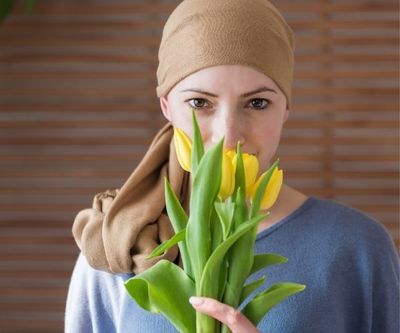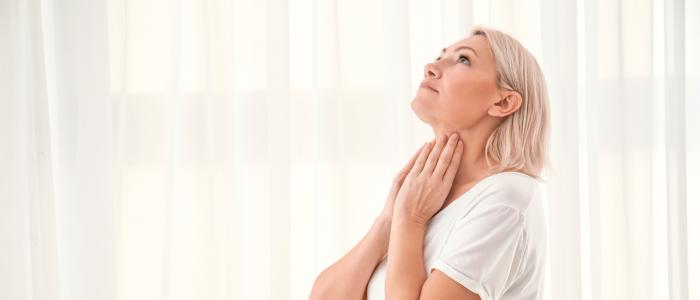Suffering with Cancer? You Need to Read This!
The C word – Cancer.
The very word strikes fear and anguish into the hearts of most. So, why is this potentially one of the most important articles that you may ever read? Because you almost have a fifty percent chance of being diagnosed with cancer in your lifetime, that’s why.
That’s right, the statistics on cancer are almost one in two people! That’s one person in every couple or two people in every family of four. Even if you are not personally diagnosed with cancer, the chances are someone in your family will be.
The intention of this article is to help you increase your understanding of what health actually is, what can potentially cause detrimental changes to the body and increase your risk of getting diagnosed with cancer, and also, the steps required to safeguard yourself from getting cancer.
Being proactive and focusing on prevention is very important and this is what much of this article will focus on. I will start firstly with what actually is health? With such dismal rates of chronic disease it’s obvious we don’t truly understand as a society what constitutes good health, so, this is my attempt at creating a new and improved paradigm of health that extends beyond the holistic paradigm. I learnt the hard way, it’s my mission to help people so they don’t need to do the hard yards as I did to learn this.
Whilst on my “little” journey with cancer, I learnt many things about myself, life, health, happiness and disease. One of the most profound teachings was the true nature of health and what it means to be “healthy”. Many people view health in terms of physical health and the lack of physical disease. We live in a society of over the counter quick fixes. There’s a so called ‘pill for every ill’. Sickness and disease for most is treated as an inconvenience and instead of taking note of the symptoms and what they truly represent for us, we ignore them and what they are telling us and ‘solider on’. What I learnt from cancer and continue to learn and teach to my clients is a new paradigm of health and wellness – one that is long overdue. One of the most important things I learnt was that health is all about balance – balance is the key to health.
In science they use a word to describe the body’s inherent drive to maintain balance – scientists call this homeostasis. Homeostasis is usually referred to in the context of biology or biochemistry but what I learnt was that homeostasis is equally important from our microscopic existence to our macroscopic existence in the world in which we live. Homeostasis, or balance, is required on all levels of health which include the physical, but also the mental, emotional, social, spiritual, financial and familial levels that make us happy, healthy and whole. Health therefore is our ability to balance the entirety of our life and I believe is a constant dance. By that I mean, I don’t know if we ever reach this ‘point of balance’, I don’t believe that this is a place that exists – the quality of our health is determined by our ability to react and respond to internal cues to continually maintain homeostasis (balance) the best we can on all levels of health.
The signs and symptoms of disease, although sometimes an inconvenience, are nothing more than your body’s feedback system that allows the organism (you) to recognise that things are out of balance and action needs to take place so this balance can be re-established. Think of your signs and symptoms as true body language – the way in which your body communicates its needs to you. Instead of shutting it up with a medication, vitamin, herb or the like, listen to it – it’s your body loving you the best way it knows how by giving you this feedback….. Now this applies from a simple cold sore, to recurrent colds and flus, an autoimmune condition and yes, it includes cancer as well. To illustrate this, here is an example from one of my clients just a few weeks ago. This client presents to me with chronic cold sores that won’t go away. She had been using Zovirax and taking lysine to no avail – they wouldn’t clear. The cold sores were becoming quite debilitating at this point. So instead of prescribing more supplements I asked a simple question – “So what’s been going on?” She began to give me the run down and it turns out over the last month she has had a lot of work related stress as she works in mining and her job stability is not so good at the moment. She had also moved house. This involved packing up one house, fulling cleaning it, moving her stuff to the new house then fully cleaning the new house before unpacking her contents. To top it all off she had been arguing with her partner and did this virtually all on her own. I said to her “You’ve been pretty stressed hey?” – she agreed. For this women, the cold sores were not the issue. Over a period of 4 weeks she had run her body down and the opportunistic herpes simplex 1 virus, which up to 80-90% of the population has, came out to play. The herpes simplex 1 virus exists in the trigeminal ganglion, a group of nerves near the ear, and when our immune system is compromised, as when we are run down as this lady was, the virus comes out of the ganglion and travels down the nerves to where they end to cause a lesion – guess where this is? The lips – hence why cold sores most commonly manifest on the lips. So for this lady, the cold sore wasn’t the problem, the herpes simplex virus wasn’t even the problem as anywhere up to 90% of the population has it and not everyone gets cold sores, it wasn’t a deficiency of Zovirax or zinc or lysine, so what was the problem? Due to the environment she chose to surround herself in (lack of sleep, poor dietary choices and high amounts of physical, mental and emotional stress) her body and health became out of balance – she became run down. The end result was a cold sore, the messenger. Because she didn’t understand the language of the body and has bought into the existing paradigm of health which is symptomatic in nature, she viewed this as an inconvenience and went to the local pharmacy for advice to no avail. Her body was telling her to slow down, destress, sleep more, eat better and make amends with her partner – it was loving her the best way it knows how. Does this make sense?
Now this is supposed to be an article on cancer and cancer prevention not cold sores, but I can transpose this same theme of story to many of my cancer patients (not all, but a very high proportion) and there are many similarities – too many actually. So imagine if your life got so out of balance, so out of control, to such a degree that your body had to scream for attention because it didn’t like the path you were travelling? What would be effective ways to cry out for attention, ask for change or even demand change? Would chronic pain, depression, autoimmunity or a tumour do the job? How loud would it need to yell?
As a naturopath I get the luxury and privilege to sit down for an hour with my patients and listen to their story – I make a point of this. Their story is really important – it’s who they are, where they came from, what makes them tick, it can determine where they are going and unfortunately, the diseases they may get. In my experience many cancer patients feel that their life is really out of whack, many feel there is a level of ‘out-of-controlness’ to it. In the study of epigenetics, which is the study of how our environment influences our genetic expression, it shows that certain environmental factors such as the quality of the food we fuel our body with, the amount of stress we have in our life and how we cope with it, and the amount of environment toxins we saturate our bodies with affects oncogene expression. Oncogenes are cancer promoting genes. Take stress for example – chronically high stress levels in the body have been shown to promote oncogene expression and inhibit tumour suppressor gene expression – tumour suppressor genes as the name implies, supresses cancer growth and formation – so they are somewhat the opposite of the oncogenes. The definition of a cancerous cell is a cell that has lost all control mechanisms – it results in a cell that grows, divides and spreads in an uncontrolled fashion to the detriment of the host (the person). So, stay with me, according to epigenetics, which is a proven science, our environment influences genetic expression for good or bad depending on the environmental factors. So bearing in mind that cancer is an uncontrolled cell, my question to you is, if a high degree of environmental factors were out of control in your life, what type of genes do you think would be promoted? Oncogenes or tumour suppressor genes – the bad or the good ones? I’ll let you answer that question and dwell upon that.
The environment you provide for your body to exist within includes the food you eat, the water you drink, the air you breath, the thoughts you think, the potions and lotions you put on your skin, the colours you dye your hair with, your occupation, your friends, what you watch on telly and the conversations you have and more – its everything. When working with my patients on optimizing their health and how to prevent disease, I teach them about my three pillars of health which ultimately affect their ‘environment’. The three pillars are Nourishment, Stress and Toxicity. Health unfortunately isn’t simply a deficiency in a supplement, following a certain style of eating or the look of your physical body, it’s a little more complex than that. When these three pillars are applied to the 7 levels of health – physical, mental, emotional, social, spiritual, financial and familial health, it blueprints for us a plan of action to bring about homeostasis, or balance, to the organism – you. So let’s take a brief look at each pillar of health.
Nourishment – Nourishment doesn’t simply refer to what we put in our mouth. As with stress and toxicity, the other two pillars of health, I refer to nourishment in all its contexts. So on the physical health level, nourishment may take the form of the quality of the food you put in your mouth, the level of activity, how much sleep we get or how much downtime we allow ourselves to have – are we being nourished? In another example, nourishment on a social health level may take the form of how much time we put into our social life like making time each week or fortnight to call a friend, go out for a sneaky piece of mud cake or go on a group mini-break a few times a year. A final example of nourishment applied to the financial health level may be how much time you invest in monitoring your finances, budgeting correctly, and learning about how to manage your finances and grow them. Some people get a bit “funny” when I mention financial health in this paradigm and that’s probably related to negative belief systems around money for that person, but I have experienced firsthand as well as witnessed many patients become unwell partly because of their financial situation. It’s for this reason that I believe it is important for this level of heath to be included. So the main point here is to ask yourself, and only you can truly answer this, “How nourished am I in all seven areas of my health?” Many people put most of their eggs into two or three of their levels of health – how many empty baskets do you have? What can you change to spread the eggs out more evenly?
Stress – Last newsletter I wrote an article on the stress response and its lessor known cousin, the relaxation response. In this article I introduced the reader to a broader understanding of what stress actually is. In essence, stress, or the fight or flight response, is a full body physiological response that affects all systems of the body. In the acute context stress is beneficial, but as the article explained, in the chronic context, chronic persistent stress, the type we are all exposed to, has a major influence on the functioning of the body in a negative way. Chronic persistent stress interferes with the normal, healthy functioning of the human body tipping it out of balance encouraging dis-ease. In my own personal experience and listening to the life stories of thousands of patients, the importance of stress in the development of chronic diseases such as cancer is undeniable. I personally consider it more important than what you feed your body. Stress is the intangible, subjective and conceptive ‘elephant in the room’ that doesn’t get given the full credit it deserves in its role in the development of chronic disease. When applied to the seven levels of health stress needs to again be thought of in all contexts. Physical stressors may include too much exercise, not enough sleep, FIFO work and shift work to name a few. Mental and emotional stressors can include work deadlines, workplace bullying, kids and being time poor. Spiritual stressors may include not feeling like you have a purpose and familial stressors may be trying to live up to ingrained belief systems that run in your family. So the main point here is to ask yourself “How stressed am I on all levels of my health?” Where is the most chaos in your life? This is probably where most of your stress is and where you invest the least time, effort and money. Maybe re-prioritising and a little more nourishment is in order in these areas.
Toxicity – As with the other two pillars, what I am suggesting here is that we look at toxicity in our lives in all contexts. Unfortunately in this day and age we live in a toxic soup. From the food we eat, the water we drink and bathe in, what we put on our skin to the air we breathe, we are swimming in a sea of toxicity and it’s seriously affecting our health. Many of these toxins in themselves are directly or indirectly carcinogenic (cancer causing), some interfere with our hormonal balance and many we don’t fully understand the role they play in interfering with our body leading to disease. Toxicity can also be applied to the other areas of life/health. We can think about toxic friends, relationships, belief system around various things…. A toxic mother in law…. The point is, toxicity can take many forms creating imbalance. In regards to cancer and cancer prevention, toxicity on a physical level is very important. Toxins can be tested for. I try not to guess or theorize with my patient’s health. If you can test for it and the test is valuable for optimizing a treatment plan, then test for it. Don’t mess around.
There’s an old saying that goes a little like this, ‘you cannot heal a condition with the same conditions that have helped to create it.’ So what does this mean for you in relation to cancer prevention? It means that change may be necessary to safe guard yourself from cancer. Human beings are creatures of habit – we don’t like change so this can be challenging for some – but the chances of you getting cancer are high and take it from me – it’s not fun… trust me on this one… But what do I need to change I hear you say? Well a great place to start are the risk factors associated with cancer. There is a universal law that you cannot run away or hide from called cause and effect. If you increase your number of cancer causing risk factors then your risk of cancer obviously, goes up. Risk factors include smoking, high alcohol intake, exposure to environmental chemicals, aging, sun exposure, radiation exposure, some viruses and bacteria, certain hormones, a familial history of cancer, poor diet, lack of physical activity and being overweight. For prevention I focus on my three pillars of health – how nourished are you, how stressed are you and how toxic are you?
My cancer came back on me twice because I wasn’t willing to make the changes required that my body was requesting. I resisted the changes because my perception was that the ‘pain of change was greater than the pain of staying the same’. Now if you keep doing what you have always been doing, well, you can expect what you have always been getting, and if that is a chronic disease like cancer, well, you do the maths. For me this change involved me changing my work, relationships, financial situation and my mindset around my life and my health and guess what? The pain of staying the same was actually worse than the pain of change, not the other way around.
So how can I help someone like you prevent a diagnosis of cancer? An important point for you to understand before I answer that is that most cancers take a very long time to develop before they are picked up on routine blood tests, scans or can be felt. A tumour needs to be around 3mm in size before a scan can pick it up. Usually you will not feel it until it’s the size of a pea and at this stage it is already an advanced disease. My point here is don’t wait until you are diagnosed. Most cancers can take 5-10 years (excluding very aggressive forms) to develop to the size of a pea so prevention and early treatment/prevention is important. Firstly we must look at creating for you a conducive environment for health removing any obstacles to healing – we must look at how you are currently applying the three pillars of health to your life on all levels. We need to identify any risk factors and address them appropriately, teach you the skills to manage stress in a healthy fashion, detoxify the body and most importantly we need you to be inspired about life. Many of my cancer patients feel as if they are merely existing in life, not living it. An un-inspired life can feel a little ‘groundhog day-ie’ and if you don’t have a reason to live, you have a reason to perish. If you would like to work with me to optimize your health and decrease the chances of being diagnosed with cancer in your lifetime please call the clinic to make an appointment. I look forward to working with you towards a healthy, long and fruitful life.
With in-depth functional pathology we can quantify the levels of heavy metals, organophosphates, chlorinated pesticides, volatile solvents, PCBs, BPAs, phthalates and parabens in your body and we can tailor a detoxification program to address anything that may be lurking there. A diseased plant grows out of unhealthy, polluted soil. If the soil of the body is polluted disease will ensue. How polluted is your body?
Edward Enever, Three Time Cancer Survivor
Adv.Dip.(Nat)
After himself defeating cancer three times, Edward uses his skills and experience to guide patients through their journey with cancer. From prevention, diagnosis, to remission, cure, or end of life transition, Edward is uniquely experienced to help make your journey with cancer as smooth and as effective as possible using his skills and experience in nutritional medicine, herbal medicine, counselling, life coaching and meditation to enhance health outcomes and complement traditional oncology care.
